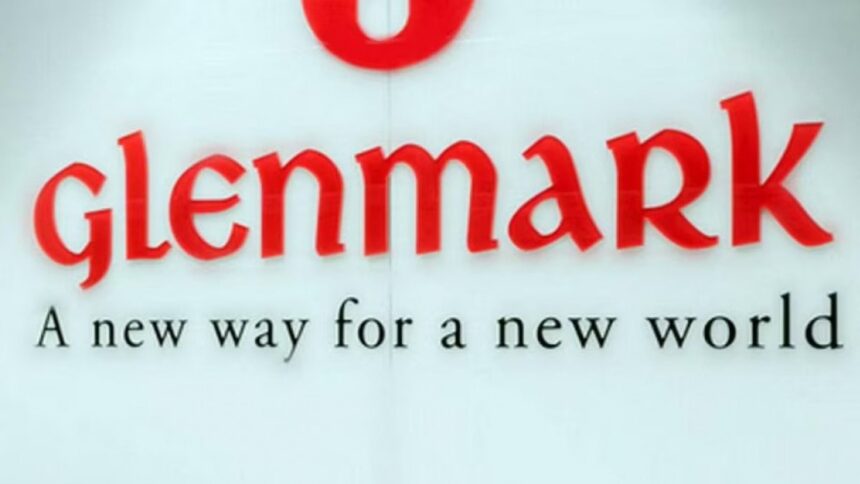Detergent soap maker Nirma has acquired a 75 per cent stake in Glenmark Life Sciences at an enterprise value of about Rs 7,500 crore in a deal reflective of a rising investment interest in healthcare and pharmaceutical industry, one of the world’s fastest-growing sectors.
Deal decoded
Glenmark Pharmaceuticals has entered into a share purchase agreement with Nirma Limited to divest a 75 per cent stake in Glenmark Lifesciences at a price of Rs 615 per share, amounting to Rs 5,650 crore. This transaction reflects a slight 2 per cent discount compared to the current market price of Glenmark Lifesciences. The proceeds from this sale will be utilized to retire Glenmark Pharmaceuticals’s outstanding debt, which stood at Rs 4,340 crore as of FY23.
Furthermore, the board of directors is contemplating the declaration of an interim dividend of Rs 2,250 crore before finalising the transaction. The expected closing date for this deal is in FY24, subject to obtaining the necessary regulatory and shareholder approvals. Post-transaction, Glenmark Pharma will still retain a 7.84 per cent stake in Glenmark Lifesciences. Additionally, the current promoter group members of Glenmark Pharmaceuticals will be reclassified as public shareholders, relinquishing their two board seats.
In addition to the stake sale, Glenmark Pharmaceuticals and Glenmark Lifesciences have extended their business relationship for the next five years. They have amended their Active Pharmaceutical Ingredient (API) supply and purchase agreement, with Glenmark Pharmaceuticals committing to procure APIs for Glenmark Lifesciences starting from April 1, 2024. Furthermore, an amendment services agreement has been established, under which Glenmark Pharmaceuticals and its subsidiaries will provide support services to Glenmark Lifesciences for a defined period.
This transaction values Glenmark Lifesciences at approximately Rs 6,700 crore, which is equivalent to Glenmark Lifesciences’s current public market capitalization. Given the current valuation of Rs 6,700 crore and a Price-to-Earnings (P/E) ratio of 15.26, analysts anticipate that Nirma’s investment in Glenmark will yield a 7-year Return on Invested Capital (ROIC) of 14%. This calculation is based on the assumption that earnings growth over the next 7 years will closely mirror the 3-year historical Compound Annual Growth Rate (CAGR) of approximately 14 per cent , while keeping a constant P/E multiple. This expected ROIC is 200 basis points higher than the SENSEX return of approximately 12 per cent over the past decade (from 2013-2023).
The advisory team for the Nirma Group included Khaitan & Co, KPMG, BCG, Eaishman, and DAM Capital. It’s important to note that Nirma will need to make a mandatory open offer in accordance with SEBI Regulations, and the acquisition is subject to customary regulatory approvals.
Cracker of a deal for Nirma
Nirma Group has entered the Active Pharmaceutical Ingredient (API) sector with its recent acquisition of Glenmark Life Sciences, expanding its existing pharmaceutical portfolio, which includes products such as injectables, parentals, and ophthalmic items.
Within its healthcare portfolio, Nirma currently holds two significant entities: Aculife Healthcare Pvt Ltd and Stericon Pharma Pvt Ltd. Aculife Healthcare is a leading player in the infusion and injectables sector and boasts a state-of-the-art manufacturing facility spanning 550 acres near Ahmedabad. Its global presence extends to over 100 countries, with subsidiary operations in Brazil and Mexico, as well as offices in Vietnam and the Philippines.
The manufacturing facility itself comprises two plants equipped with advanced FORM FILL SEAL (FFS) technology. These plants cater to various purposes, including the production of glass injectables, a newly established facility for manufacturing Bags, Respules, Ophthalmics, and Gaseous Anesthesia, and another designated for dermatology and Oral shots.
The acquisition of Glenmark Life Sciences follows Nirma’s earlier acquisition of Stericon Pharma, a Contract Development and Manufacturing Organization (CDMO), from the private equity firm InvAscent in March 2023. Stericon Pharma specializes in the production of sterile multipurpose contact lens cleaning solutions, as well as sterile eye and nasal formulations.
“The acquisition of Glenmark Life Sciences aligns with our company’s strategic goals and positions Nirma as one of the top five independent API companies in India. This strategic move also enables us to capitalize on indigenous research and development, making a substantial contribution to the ‘Make in India’ initiative launched by the Government of India,” Hiren Patel, Managing Director of Nirma Limited said.
Glenmark Life Sciences Limited primarily engages in the development, manufacture, and marketing of APIs. The company’s product portfolio includes various therapeutic segments, such as cardiovascular (CVS) disease, central nervous system (CNS) disorders, diabetes, gastrointestinal health, oncology, pain management, and anti-infectives. It operates manufacturing facilities at Ankleshwar, Dahej, Mohol, and Kurkumbh, with research and development facilities located at Mahape, Ankleshwar, and Dahej in India. The company is also in the process of establishing an API manufacturing facility at Chincholi, Solapur.
“Glenmark previously sourced approximately 15 per cent of its API from Glenmark Lifesciences, which will now become a cash outflow to Nirma. The Glenmark Lifesciences business was profitable and will position Nirma, already a popular household brand, in the highly profitable healthcare space,” said Salil Kallianpur, a noted pharmaceutical research analyst.
Nirma may explore a roll-up strategy for inorganic growth, involving the acquisition of multiple small brands within the same industry. These brands can then be consolidated under a larger corporate entity, creating value through cost-saving measures and enhanced negotiation power, according to Poornima Vardhan and Taponeel Mukherjee, Principals at AltG, a financial services firm.
The Indian Contract Development and Manufacturing Organization (CDMO) market, valued at USD billion in 2022, is projected to reach a value of USD billion by 2028, with an expected CAGR of 14.0 per cent from 2022 to 2028. Capitalizing on this growth, along with implementing prudent cost measures, Nirma has the potential to significantly boost earnings growth for Glenmark Life Sciences.
Assuming the current P/E multiple remains unchanged, an earnings growth rate of 16 per cent and 18 per cent (compared to the current CAGR of 14 per cent at a valuation of $900 million and a P/E of 15.26) could potentially yield Nirma 7-year returns in the range of approximately Rs 1,088 crores (16 per cent ) to around Rs 1,290 crores (18%), said Vardhan and Mukherjee. These returns represent an attractive opportunity, approximately 400 and 600 basis points higher than the SENSEX returns, making them compelling prospects for Nirma, they added.
Short-term breather for Glenmark Pharma
During a press conference on Thursday after the deal announcement, Glenn Saldanha, the chairman and managing director of Glenmark Pharmaceuticals said that this transaction aligns with the long-term strategic goals of both companies. “For Glenmark Pharma, it presents an opportunity to enhance shareholder value by reducing debt and improving the organization’s overall return ratio profile,” said Saldanha.
The company, Saldanha said, is generating cash and expects improved performance in FY25 due to lower interest costs. “We will focus on growth, return on capital, and achieving a positive cash position. Currently, 65 per cent of their business comes from branded segments, with a growing share expected. The US generics make up 25 per cent , and the rest is branded business. Innovation efforts will ramp up from FY27 with collaborations,” he said. Glenmark Pharma specializes in dermatology, respiratory, and oncology and aims to play a significant role in complex generics in the US. R&D spending will align with peers, leading to margin improvements, Saldanha added.
The sale of Glenmark Lifesciences to Nirma, valued at Rs 5,651 crore, however, has raised concerns among pharmaceutical analysts about its impact on Glenmark Pharma.
As of 1QFY24, Glenmark Pharma carried a net debt of Rs 2,950 crore. Following the completion of the transaction, Glenmark Pharma is set to become cash positive, holding around Rs 2,140 crore in cash reserves after accounting for taxes. Glenmark Pharma has explicitly stated that these cash reserves will not be allocated for large-scale mergers and acquisitions (M&A) involving high-value investments.
Tushar Manudhane, a Research Analyst at Motilal Oswal Financial Services Limited, commented, “The stake sale eliminates the debt-related concerns for Glenmark Pharma, leaving it with extra cash to fine-tune its innovative pipeline and enhance its branded generics business. However, this change is expected to be earnings neutral.” He further noted that the anticipated decrease in EBITDA from the API business (Rs 550 crores) is likely to be offset by lower interest costs and increased other income. Manudhane maintained their valuation of Glenmark Pharma at 14 times the earnings expected for the next 12 months, resulting in a price target of Rs 780 crores, and retained a Neutral stance on the stock.
Debt reduction has been a significant priority for Glenmark Pharma’s management, and this divestment is expected to expedite the achievement of their financial objectives. Glenmark Pharma typically allocates an annual budget of Rs 1,300 to 1,400 crores for Research and Development (R&D). Additionally, the company faces a pending litigation settlement payment of USD 87.5 million over the next 2 years and incurs marketing costs related to Rylatris. Challenges are also posed by the underperformance of its US generic business.
Kallianpur, emphasized that the divestment provides a net positive cash infusion of approximately Rs 1,150 crores, enabling Glenmark to focus on growth in its strengths areas such as Dermatology, Respiratory, and Oncology. However, Kallianpur noted that Glenmark loses vital value chain integration as it divests its API business, while the rest of the industry is striving to build that integration with government support under the China+1 and Production Linked Incentives (PLI) schemes.
Pharmaceutical analysts Abdulkader Puranwala and Rohan John with brokerage firm ICICI securities reported that the divestment of the API business is expected to have a notable impact on the projected revenue and Earnings Before Interest, Taxes, Depreciation, and Amortization (EBITDA) for the fiscal year 2025 (FY25E). Specifically, it is anticipated to result in a decline of approximately 10.4 per cent in revenue, amounting to Rs 17,200 crores, and about 17.5 per cent in EBITDA.
“However, it’s worth noting that this impact may be partially mitigated by lower interest costs associated with the reduced debt burden. Furthermore, we anticipate that this transaction may lead to an earnings dilution in FY25E, potentially causing a reduction of approximately 5% in earnings compared to previous estimates,” Puranwala and John said. Given these considerations, they maintained their SELL rating on the stock, with a target price set at Rs 660.
The ICICI securities report stated that the proposed transaction may have a negative impact of 10% on FY25E revenue and the EBITDA margin may shrink by 150 basis points (bps). Nevertheless, the repayment of debt resulting from the divestment could partially mitigate this impact.
“The divestment will effectively eliminate the current debt pile. Nevertheless, in the long run, the company will still require cash to fund its Research and Development (R&D) budget, which is in the range of Rs 1,300 to 1,400 crores annually, cover the marketing costs associated with Ryaltris, and address the challenges of its underperforming US generic business,” Puranwala and John said.
Also read: Glenmark Pharma to sell 75% stake in Glenmark Life Sciences to Nirma for Rs 5,652 crore
Also watch: Top stocks of the week: Berger Paints, Power Finance, Union Bank, Indian Bank, HDFC Bank & others








